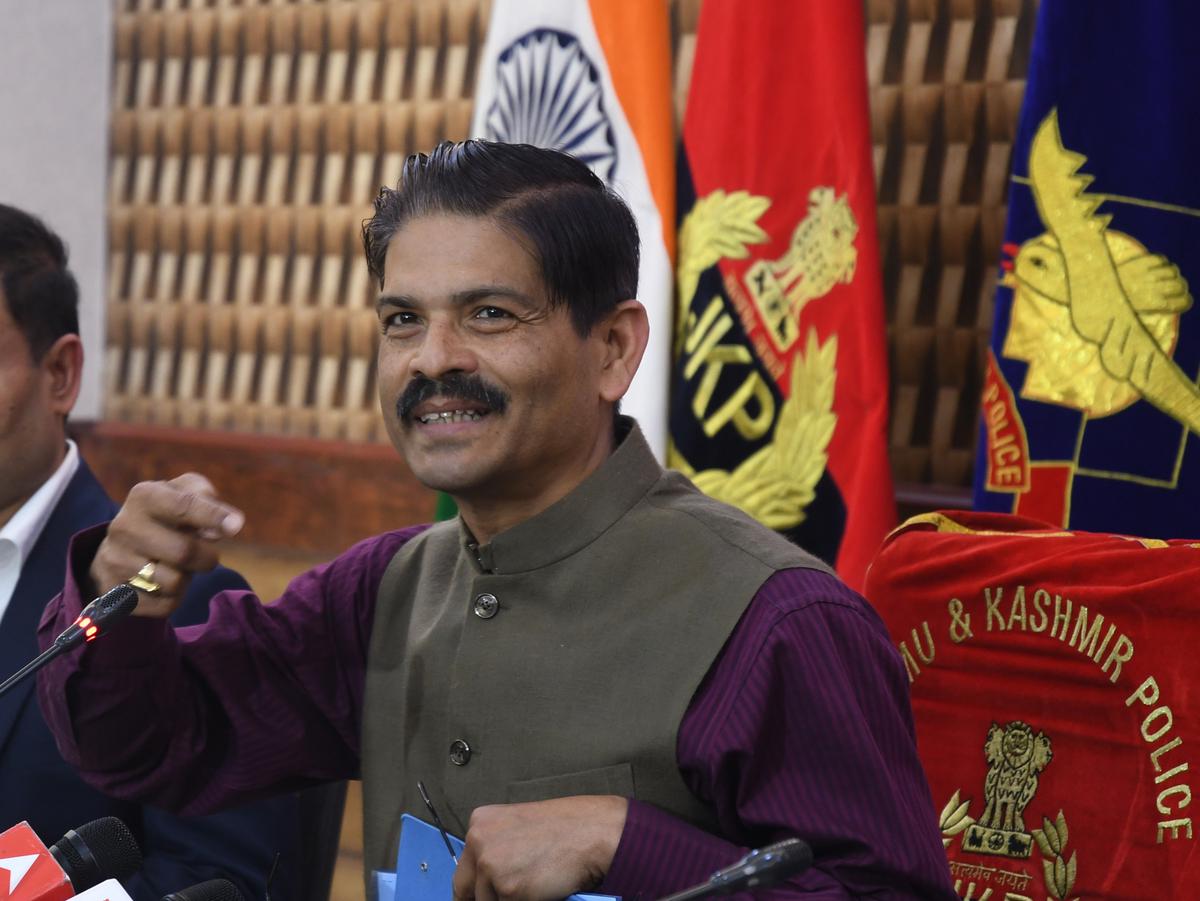Director-general of police Rashmi Ranjan Swain on Saturday vowed a tougher anti-militancy campaign, promising action against writers “hiding behind freedom of speech and expression” but whose “writings” are believed to have incited youth to pick up arms
The new police chief of Jammu and Kashmir seems to be in dissonance with the high court over the limits of freedom of speech and expression here and which “writings” can constitute a “terrorist act”.
Director-general of police Rashmi Ranjan Swain on Saturday vowed a tougher anti-militancy campaign, promising action against writers “hiding behind freedom of speech and expression” but whose “writings” are believed to have incited youth to pick up arms.
A day earlier, the High Court of Jammu & Kashmir and Ladakh had put up a rare defence of freedom of speech in the Union Territory.
Swain on Saturday told reporters that security agencies and police were discussing new ways that could check militant recruitments in Jammu and Kashmir. He said the security forces would ask parents, teachers and mosque imams who were the people who “incited” the youths to pick up arms.
“Each act of recruitment will be treated as an act of terror in which people who decided to or helped the facilitated boy, this youngster, to join the terrorist ranks are equally liable, if not more,” Swain said.
“There would be a sustained action against people who motivate and recruit, even people who write very differently, they are also liable for encouraging recruitment. Those persons also, I mean the writers, we will initiate action against them, those who are hiding behind this, in the name of freedom of expression, are inciting people…. We will not allow it to happen.”
On Friday, a division bench of the high court comprising Justices Anil Sreedharan and Mohan Lal granted bail to Fahad Shah, the editor of the now-defunct news portal The Kashmir Walla, and offered a rare reprieve to the embattled journalist community and citizens caught on the charge of sheltering the militants. Shah is in detention since February 2022 and has still not been released.
The principal charge against Shah was that his portal reportedly carried an article, authored by Kashmir University scholar Abdul Aala Fazili and titled “The shackles of slavery will break”, 11 years after its publication in 2011. Fazili has also been arrested.
The court said the article called for secession from India and accused the government of committing genocide in Kashmir, but said Shah’s case was primarily associated with his “right to freedom of speech and expression” which “prima facie appears to have gone wrong”.
The government had accused Fazili of creating a narrative to incite youth to adopt violent means of protests to secede from India, calling Shah a “willing collaborator”.
“It must, however, be stated that there is no call to arms by the author. There is no incitement to an armed insurrection against the state. There is no incitement to violence of any kind, much less acts of terrorism of undermining the authority of the state with acts of violence,” the court said.
“The act was allegedly done 11 years back. From then till date, no evidence has been brought on record that the offending article was responsible in provoking persons to take to militancy. Not a single witness says this.” Source




